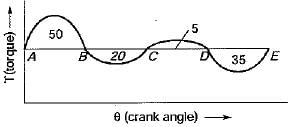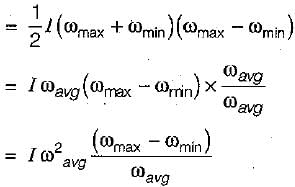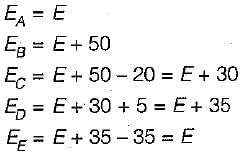Test: Flywheels - 2 - Mechanical Engineering MCQ
10 Questions MCQ Test - Test: Flywheels - 2
In the case of a flywheel of mass moment of inertia 'I’ rotating at an angular velocity ‘ω’ the expression 1/2 lω2 represents the
In which one of the following is a flywheel generally employed
The maximum fluctuation of energy during a cycle for a flywheel is
The amount of energy absorbed by a flywheel is determined from the
The crank-effort diagram of an engine running a machine is showing the areas above and below the mean line (in joules). What is the maximum fluctuation of energy in the below diagram?

For a certain engine having an average speed of 1200 rpm, a flywheel approximated as a solid disc, is required for keeping the fluctuation of speed within 2% about the average speed. The fluctuation of kinetic energy per cycle is found to be 2 kJ. What is the least possible mass of the flywheel if its diameter is not to exceed 1 m?





























